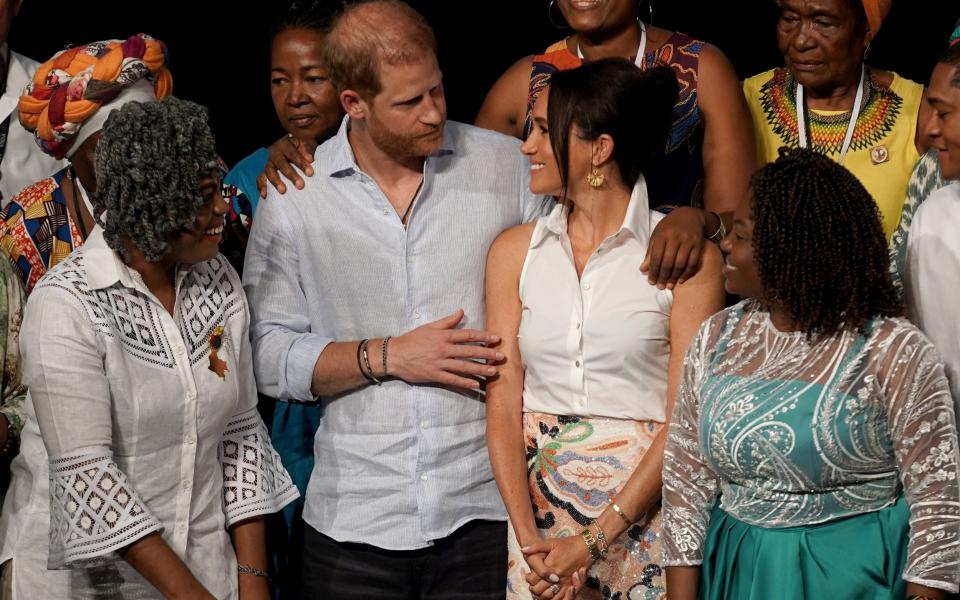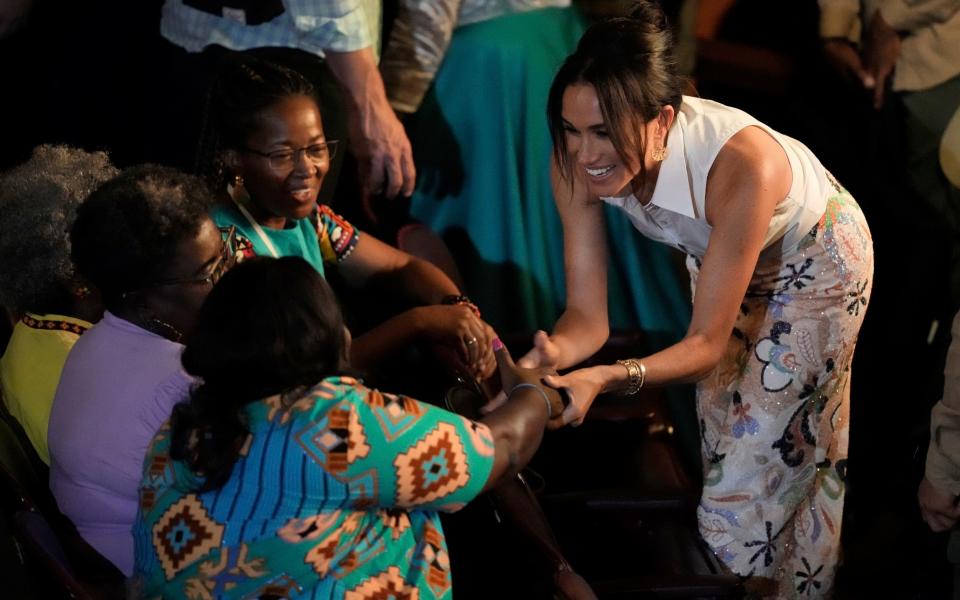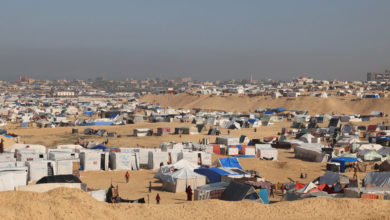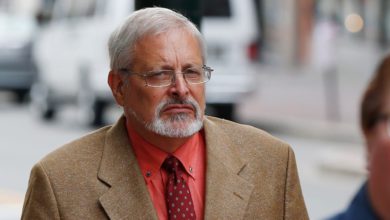Princess Lilibet has found her voice aged three, Meghan tells Afro Women event

Princess Lilibet has “finally found her voice” at the age of three, the Duchess of Sussex has said.
Speaking on a panel at an Afro Women and Power event on the last day of the couple’s Colombia tour, Meghan said she has tried to help her daughter find her voice and is “so proud” she has.
She said: “So I think part of the role modelling that I certainly try to do as a mother is to encourage our daughter, who at three, has found her voice.
She added: “We’re so proud of that, because that is how we, as I was saying, create the conditions in which there’s a ripple effect of young girls and young women knowing that someone else is encouraging them to use their voice and be heard.”
The Duchess, 43, also said men should help empower women like Prince Harry.
She said her role as a mother and a parent was to make sure young girls feel their voices are being heard and “also that young boys are being raised to listen”.
“The same goes for adult women and men – this isn’t something that can be solely responsible and in the hands of just women,” she added.
“Yes, we work incredibly well together as a team, but as my husband is great testament to, the role of men in this, of empowering women, of allowing them to know that their voices are heard, starting at a young age all the way through adulthood, is key.”


Earlier Meghan said she found “inspiration in so many of the strong women that are around me. Of course, my mother being one of them.”
She also said she had managed to unwind on the couple’s four-day trip.
“You may have noticed that my husband and I were talking about this morning, I’m just really relaxed on this trip.”
She added: “That’s probably because it’s Colombia and you all know how to have fun.”
Meghan started by delivering her remarks in Spanish and said she and Harry could “feel the embrace from Colombia”.
“Sorry if my Spanish is not perfect because I learnt 20 years ago in Argentina, but I’m trying because here I can feel this community and this feeling which is the best in the world,” she said.
Meghan also thanked Francia Márquez, the vice-president, who she called “my friend”.
Ms Marquez’s remarks were briefly interrupted by a heckler who spoke about the lack of inclusion of trans women.


Before the discussion, the Duke and Duchess were seen in the front row clapping and enthusiastically nodding their heads to musical performances.
The couple were then expected to join 500,000 festival goers at the final day of the Petronio Alvarez music festival, the largest Afro-Colombian celebration in the country.
Cali, along with Cartagena, are the two cities with the largest proportion of Colombians with African descent, according to the UN’s Economic Commission for Latin America and the Caribbean.
On Saturday Ms Marquez called the Duke and Duchess “a symbol of resistance” ahead of the final day of their quasi-royal tour.
They visited Escuela Taller Tambores de Cabildo, in the coastal city of Cartagena, where they took part in a drumming lesson and heard about the community’s efforts to preserve its heritage.
At the event Ms Marquez thanked Prince Harry and Meghan for visiting Colombia.
“We are grateful that both of them are here because for me they are also a symbol of resistance, of rebellion,” she said.
She added: “We do not remain silent in the face of injustice and we raise our voices from wherever we are.”
The country’s first black, female vice-president had revealed earlier that she had been moved to invite the couple after watching their six-part Netflix series.
Harry and Meghan’s decision to visit Colombia, for what has been dubbed a DIY royal tour, has raised eyebrows in light of Harry’s previous comments about security concerns in the UK.
The Foreign Office advises against travel to some parts of the country.
The couple started their four-day trip in Bogota, the capital, where Harry discussed online harms in comments which appeared to make a thinly veiled swipe at Elon Musk, the billionaire owner of X.
They also visited a school in the city’s Santa Fe region.
On Saturday the pair travelled to San Basilio de Palanque, a walled town about 30 miles south of Cartagena which was founded by runaway slaves.
They were shown around what is believed to be South America’s first free town and is seen as an important part of African heritage and resistance.
They were also treated to musical performances and shown the statue of Benkos Biohó, the town’s founder.
The trip has been tightly controlled with limited press access and an intense security operation.
Source link




